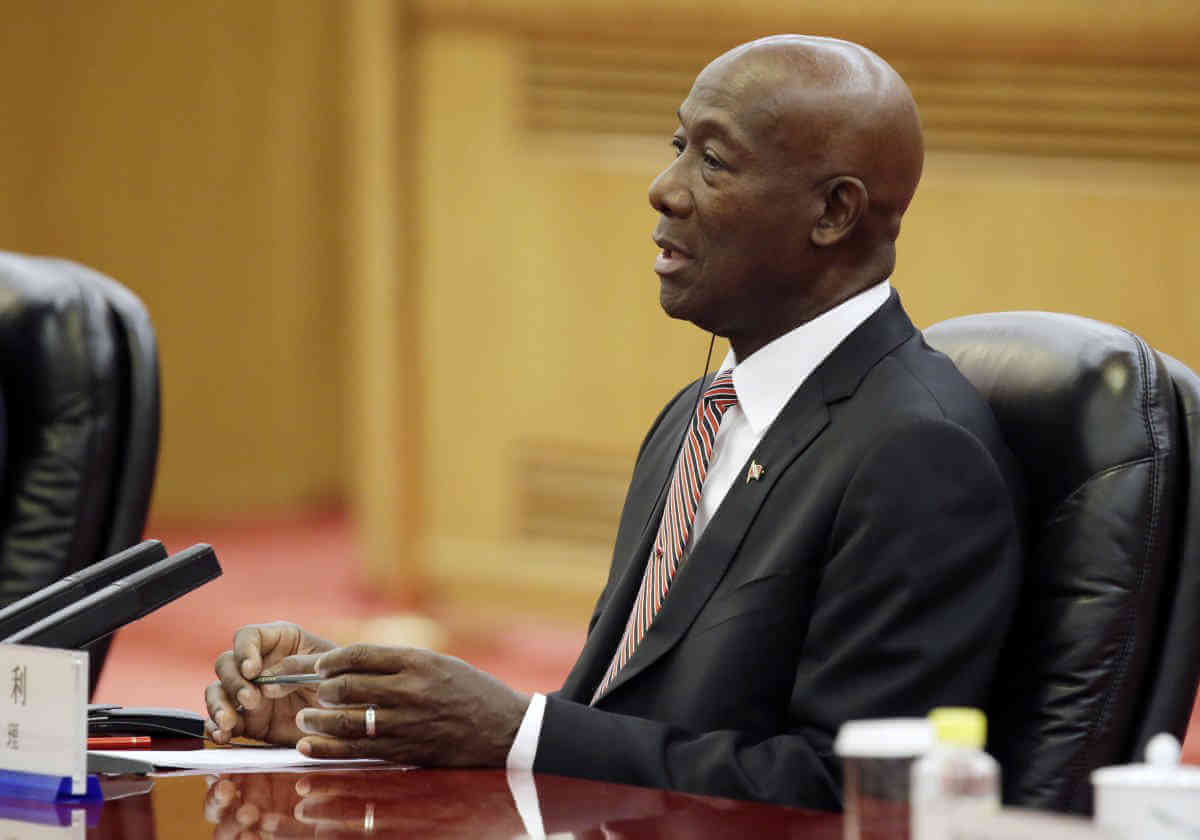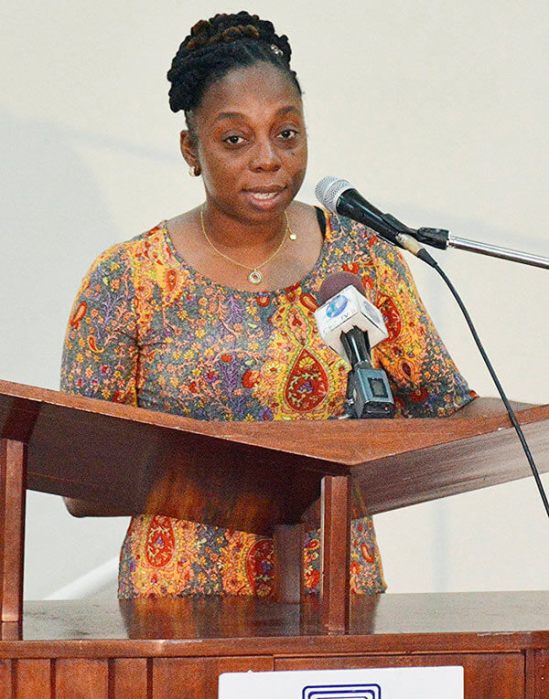Bahamas
Former Minister of Tourism Oble Wilchcombe has accused the Bahamas government of victimizing gaming operators, saying it should consider all the industry has undergone to date, inclusive of the millions of dollars the operators were made to pay in back taxes.
Earlier this year, Minister of Finance Peter Turnquest announced a sliding-scale tax system on gaming house revenues and a five percent tax on gaming patrons.
The taxes were set to go into effect on July 1, 2018, but the move was delayed to give gaming operators time to re-adjust.
The gaming operators recently filed a lawsuit seeking leave for a judicial review and a stay on gaming taxes, claiming that the decisions of the Hubert Minnis government were “unfair, irrational and oppressive.”
The government has agreed, pending a court hearing on Oct. 5, not to implement the stamp tax and not to enforce the sliding-scale tax.
Attorney General Carl Bethel said the decision is a courtesy to domestic gaming operators and to the court.
Wilchombe said when the former administration regularized the industry and imposed licensing fees and taxes, including the back taxes, numerous operators folded up and got out of the business.
Barbados
The Barbados National Oil Company Ltd. (BNOCL) is holding talks with several suppliers with a view to making a similar arrangement it had with the Trinidad and Tobago state-owned oil company Petrotrin.
The Trinidad and Tobago Prime Minister Dr. Keith Rowley recently announced the closing of its refinery, blaming it on increasing financial losses. The shutdown will lead to close to 5,000 employees losing their jobs.
In a statement recently, BNOCL said it currently imports gasoline from and sells its crude oil to Petrotrin, while diesel and fuel oil were sourced extra-regionally.
It said kerosene is imported by the oil companies Sol and Rubis.
BNOCL said that at the time of the Petrotrin announcement regarding the oil refinery, Barbados was exporting annually 260,000 barrels of crude oil to the Point-a-Pierre (South Trinidad) refinery and importing 60,000 barrels of gasoline a day.
It said the annual contract with Petrotrin entailed the exchange of the crude oil for gasoline, which aided in the reduction of foreign exchange cost, as the value of crude offset the outlay for the gasoline.
The Ministry of Energy and Water resources said that through BNCOL, it has been in discussion with several suppliers with a view toward employing a similar arrangement to that with Petrotrin.
Guyana
The Guyana government has defended its decision to sign a Memorandum of Understanding (MoU) with Trinidad and Tobago even as the business community called on it to delay the agreement.
Minister of Foreign Affairs Carl Greenidge said the Framework Agreement and the MoU will be signed between the two countries and downplayed calls by the Guyana Chamber of Commerce and Industry (GCCI) to delay the signing until Guyana puts in place legislation regarding local content in its oil industry.
The GCCI said it recently submitted a model of local content legislation to the David Granger administration and called on it to delay the signing of the MoU, which could pave the way for Trinidad companies to gain better access to doing business in the CARICOM country.
Greendige said the memorandums are merely statements that show governments will collaborate on general trade matters to establish a platform on which cooperation will be undertaken.
He said the MoU is not binding, but will be followed by other “more concrete” documents like the Framework Agreement that establishes what both countries will be bringing to the table.
Grenada
The Grenada government is worried over the closing of the Trinidad and Tobago-owned Petrotrin refinery which supplies the island with refined products such as gasoline, diesel and aviation fuel.
Petrotrin has announced that come Oct. 1, 2018 the refinery will be closed because its billions of dollars in losses was a drain on the treasury.
Leader of Government Business in the Lower House of Parliament Gregory Bowen during its monthly meeting a week ago said that since the announcement of the closure of Petrotrin’s refinery, companies which supply energy products in the region have written to CARICOM governments seeking the removal of the External Tariff because of the cost it will have on supplies coming outside of the region. He said Trinidad has not objected to this request because it cannot supply to the market, so the removal will have to be done.
Bowen told the House that purchasing fuel products from outside the region will result in increased prices.
Jamaica
The Jamaica government says it is looking at the possibility of linking small marijuana farmers with large processors who have the ability to convert the plant into a range of medicinal products.
Minister of Agriculture and Fisheries Audley Shaw said he is looking at a program where all serious marijuana farmers who want to plant the herb for the formal industry will have to come together and form a co-operative.
Addressing a youth forum recently, Shaw said the cooperative will then apply to the Cannabis Licensing Authority for a license, which will give them legitimacy to grow the herb.
The minister said the co-operative would then link with the large processors within the pharmaceutical industry, who would then extract oil from the marijuana plant “and export it in barrels” to be used as raw material for medicinal uses.
St. Kitts
The St. Kitts and Nevis government is taking legislation to the National Assembly to put an end to debtor’s jail as early as next month.
Prime Minister and Minister of Finance, Dr. Timothy Harris, first indicated that the practice of sending persons to prison for failing to pay their debts will stop during a recent session in parliament.
He said the government’s intention is to bring an end to what the government considers an outdated and colonial mechanism that had sought from the origins of the 13th century or thereabout in the United Kingdom to imprison poor people for debts.
The prime minister said the legislation would help to rectify this injustice and provide for a more modern and equitable response, so “we will move the parliament in the right direction and the country in the right direction.”
Dr. Harris also said companies that lend or offer hire purchase and other lines of credit should bear some of the responsibility of non-payment since they often use “entrapment” to get persons to take up their offers and services.
Some persons fear that the threat of jail being removed would open the floodgates for individuals willfully default on their payments to banks and other financial institutions.
Trinidad
Some 7,000 immigrants are now seeking asylum in Trinidad and Tobago.
This was revealed by Chief Immigration Officer Charmaine Gandi-Andrews during a Joint Select Committee (JSC) on Human Rights at the Parliament Building in Port of Spain, Trinidad, recently.
She said 120 immigrants are at the Immigration Detention Center in East Trinidad, while 1,700 immigrants are “out,” each under an order of supervision secured by a financial bond and a Trinidad and Tobago national agreement to help the immigrant.
Gandi-Andrews said asylum can only be given to someone living in fear of their life and in fear of persecution.
The chief immigration officer said the Immigration Act does not address the plight of asylum seekers, many of whose status remains in limbo while their application is heard locally by the United Nations High Commissioner for Refugees.
— compiled by Azad Ali
























